- Home
- News & Highlights
- Honors & Awards
- Historical Tours
- Clinical Pharmocology
- Hematology & Medical Oncology
- Vascular Biology
- Emeritus, Voluntary, & Affiliated Faculty
- Employee Recognition Program
- Selection Committee
- FAQ
- Nominate a STAR Performer
- Location of RRR Nomination Boxes
- 2014 Star Performer Employees
- 2013 Star Performer Employees
Medicine Making News
A Timeline of Historical Achievements
Hematology and Medical Oncology
Since its inception in 1930, physicians and researchers in the Division's of Hematology and Medical Oncology have driven the frontiers of science to achieve advancements that include: discovering the function and role of the endothelium; developing novel treatments for cancers, leukemia and lymphomas; improving treatments for thalassemia in both adults and children; and furthering knowledge in the field of HIV/AIDS. In recent decades, the Divisions' pioneering efforts have led to effective chemotherapy regimens, a state-of-the-art bone marrow transplantation unit, cutting-edged stem cell research, and genomic-based cancer treatment.
Photos courtesy Department of Medicine and Medical Center Archives of
NewYork-Presbyterian/Weill Cornell
-

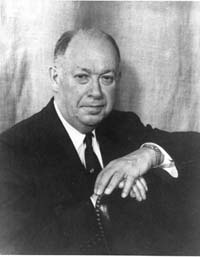
Paul Reznikoff, MD
- Hematology pioneer
- Studied effects of lead poisoning in blood, 1920s
- Experiments on effects of mustard gas on living amoeba cell membranes, 1927-29
- First Chief of Hematology Division at NYP/WC, 1930
- Studied causes of Polycythemia vera, 1930s
- Studied causes of anemia, 1940s

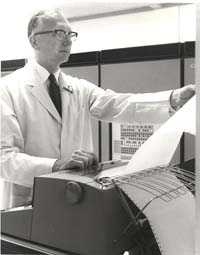
Ralph Engle, MD
- Pioneer in the use of computers to assist physicians in diagnosis of hematological disorders, 1957
- Creation of HEME and HEME 2 computer programs to capture data on hematological diagnosis and treatment, 1960s-70s (with Cornell University mathematics professor, Betty J. Flehinger, PhD)

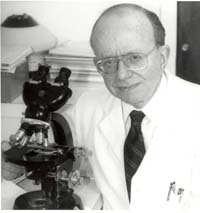
Richard Silver, MD
- Chemotherapy pioneer
- Member of initial NIH Chronic Leukemia-Myeloma Task Force, beginning in 1963. Task force eventually becomes Cancer and Leukemia Group B (CALGB).
- At forefront of initial trials of Gleevec (for treatment of chronic myeloid leukemia) and Interferon (for myeloproliferative disorders)

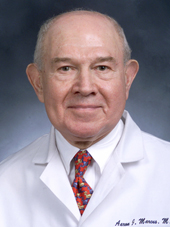
Aaron J. Marcus, MD
- Established the Thrombosis Research Laboratory at New York Veterans Administration Hospital-Cornell Service
- Discovered basic thromboregulatory activities of vascular endothelium, including CD39 as an ecto-ADPase
- Demonstrated transcellular metabolism between endothelial cells and blood cells
- Discovered the major fatty acid in blood platelets - arachadonic acid - involved in the major control system for blood fluidity
- NIH funding (continuous) since 1955

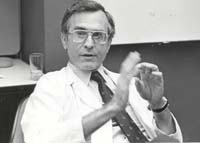
Ralph Nachman, MD
- Discovery of the endothelial and megakaryocyte production of vWF (von Willebrand Factor), 1971-1974
- Discovery of multiple ways platelets and endothelium contribute to the thrombotic process - research with SCOR Thrombosis Group (including Peter Harpel, MD, Aaron Marcus, MD, and Babette Weksler, MD)
- Chief of Division of Hematology and Medical Oncology and Chairman of Department of Medicine
- Illumination of the function of human endothelial cells (with Jaffe)

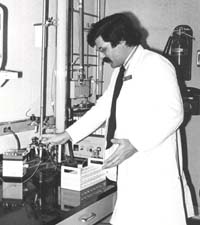
Eric Jaffe, MD
- First in vitro culture of human endothelial cells (with Nachman), 1969
- Discovery of multiple ways platelets and endothelium contribute to the thrombotic process (with Nachman and SCOR Thrombosis Group)

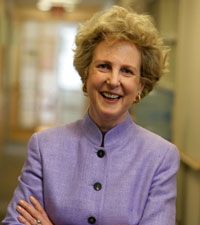
Anne Moore, MD
- Pioneer in treatment of breast cancer and Women's Health advocate.
- Medical Director of the Breast Oncology Program, 2007.
- Early advocate of individualized approach to cancer treatment; Initiated weekly multidisciplinary breast cancer conference in 1990.
- Director, Comprehensive Breast Care Center Medical Director, Breast Oncology Program, 2007


Jeffrey Laurence, MD
- Pioneer in HIV/AIDS research.
- Collaborator with
Drs. Luc Montagnier and Francoise Barre-Sinoussi, (Nobel laureates for the discovery of HIV virus) on research documenting LAV/HIV as the cause of AIDS, 1984. - Public advocate for HIV research during AIDS epidemic.
- Director of the Laboratory for AIDS Virus Research at NYP/WCMC.

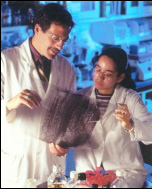
Roy Silverstein, MD
- Expert on vascular biology, thrombosis and bleeding disorders, and atherosclerosis
- Furthered knowledge in endothelial cell biology and role of platelet biology in thrombotic processes
- Leader in hematology/oncology translational research
- Recipient of New York Weill Cornell Medical Center Alumni Council's Distinguished Achievement Award for Physicians, 2008

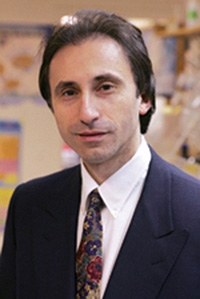
Shahin Rafii, MD
- Leader in research of the endothelium; stem cells.
- Introduced concept both tumors and regenerating organs rely on stem cells from the bone marrow to help build new blood vessels.
- Proved bone marrow endothelial cells support stem cell self-renewal and differentiation into lymphoid and myeloid progenitors.
- Demonstrated liver and lung endothelial cells contribute to the hepatic and alveolar regeneration.
- Principal inventor of several patents on therapeutic use of vascular stem cells for organ regeneration.

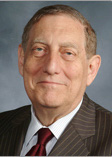
Morton Coleman, MD
- Innovator in treatment of lymphomas.
- Pioneer in monoclonal antibody therapy for treating lymphomas.
- Devised now-standard replacement for MOPP chemotherapy regimen for Hodgkin's lymphoma.
- PET scans to monitor effectiveness of chemotherapy.
- First to combine steroids with novel agents to treat myeloma. Regimen of pulse high-dose steroids now standard.
- Director of first Center for Lymphoma and Myeloma and Chief, Lymphoma/Myeloma Service, NYP/WCMC, 1997.

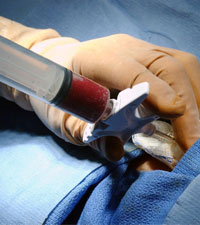
Bone Marrow and Stem Cell Advancements
- Michael Schuster, MD, is recruited and launches Bone Marrow Services in 1998 (including first allogeneic bone marrow transplant at WCMC) and Umbilical Cord Blood program (matching donated cord blood with those in need)
- Koen van Besien, MD recruited in 2011 to head Bone Marrow Services
- Division performed over 140 transplants in 2011

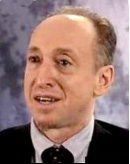
Eric Feldman, MD
- Internationally-recognized expert in acute leukemia clinical research and patient care
- Director, Hematological Malignancies, Weill Cornell, 2007 - oversees the WCMC Leukemia Program, the Lymphoma/Myeloma Program and the Bone Marrow Transplant Program
- Develops several leukemia treatment protocols used nationally and internationally
- Research discoveries in new chemotherapeutic and biotherapeutic agents for treatment of leukemia
- Advances knowledge of the biology of leukemic cells in response to chemotherapy

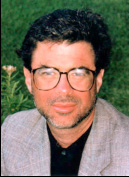
Scott Wadler, MD
- Internationally recognized clinician, clinical researcher, and expert in developing new therapies for colorectal and gynecologic cancers
- Founder, New York Cancer Consortium, an NIH-sponsored cancer clinical trials group
- Joined Weill Cornell in 2001 as Head of the Solid Tumor Service and Director of Clinical Trials Research
- First recipient, Richard T. Silver Distinguished Professorship of Hematology and Medical Oncology
- Dr. Wadler passed away in 2007

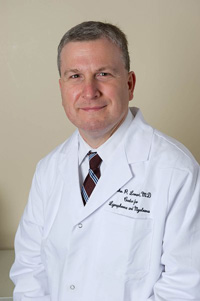
John Leonard, MD
- Director of Clinical Research
- Second recipient, Richard T. Silver Distinguished Professorship of Hematology and Medical Oncolog
- Pioneer of vaccines (immunotherapy) as alternative to chemotherapy.
- Lead investigator in the development and trial of first combination antibody therapy to treat lymphoma (Rituximab and Epratuzumab).
- Chief of Lymphoma/Myeloma Service, 2001.


Barbara Hempstead, MD, PhD
- Co-Chiefs assigned to the division - Dr. Barbara Hempstead and Dr. David Nanus meld clinician and research missions
- Dr. Hempstead accelerates advances in intracellular signaling by receptor tyrosine kinases and processes that regulate tumor metastasis
- Advances knowledge of the development of blood vessels during normal development and during tumor growth

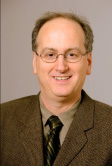
David Nanus, MD
- Co-Chiefs assigned to the division - Dr. Barbara Hempstead and Dr. David Nanus meld clinician and research missions
- Dr. Nanus develops the Genitourinary Oncology Research Program at WCMC for novel and improved therapies to treat advanced prostate, kidney and bladder cancer


Paraskevi Giannakakou, PhD
- Leads research on structure and function of cellular microtubules and potential of microtubules as targets for chemotherapy.
- Leads high-resolution microscopy and live-cell imaging to gain new information on microtubule and cancer-related systems and their cellular regulation.

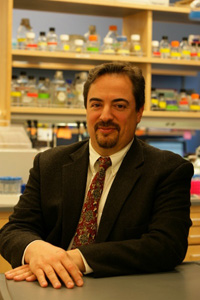
Ari Melnick, MD
- Pioneers genomics and epigenomics to develop molecular-level individualized treatments for cancers
- Leader in development of transcriptional therapy… identifies avenues to target proteins called transcription factors which play significant role in cancer growth and suppression
- Identifies pathways to treat diffuse large B cell lymphoma
- Identifies potential target for drug development for acute myelogenous leukemia

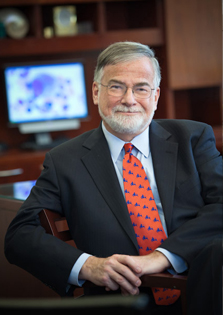
Andrew I. Schafer, MD
- Described platelet defects in the myeloproliferative disorders, including lipoxygenase deficiency
- Elucidated mechanisms of platelet activation and platelet-vascular cell interactions under physiologic and pathophysiologic hemodynamic conditions
- Discovered the role of heme oxygen-mediated carbon monoxide production by vascular cells
- President, American Society of Hematology, 2007
- Chairman, Department of Medicine, since 2007


Interdisciplinary Research: Creating Pathways for Future Advances
- Cornell Center on the Microenvironment and Metastasis (CMM) unites research scientists at Cornell University's Ithaca campus with physician-scientists at Weill Cornell, New York City
- CMM is Physical Sciences Oncology Center (PS-OC) supported by the National Cancer Institute and is under direction of Dr. Michael Schuler, James and Marsha McCormick Chair of the Department of Biomedical Engineering
- CMM brings together oncologists, biomedical engineers, nanotechnologists and their combined expertise in manufacturing nano- and microfluidic devices to devise and assemble a three-dimensional tumor model to delve into cancer�s progression
GENERAL CONTACT INFORMATION
Mailing Address
NewYork-Presbyterian Hospital/
Weill Cornell Medical College
Weill Department of Medicine
525 East 68th Street, Box 130
New York, NY 10065
OFFICE LOCATIONS
Office of the Chairman
530 East 70th Street, M-522
New York, NY 10021
Tel: (212) 746-4720
Fax: (212) 746-8793
Email: [email protected]
Administration Office
1320 York Avenue, HT-621
New York, NY 10021
Tel: (212) 746-4007
Fax: (212) 746-8214
Residency Office
530 East 70th Street, M-528
New York, NY 10021
Tel: (212) 746-4749
Fax: (212) 746-6692